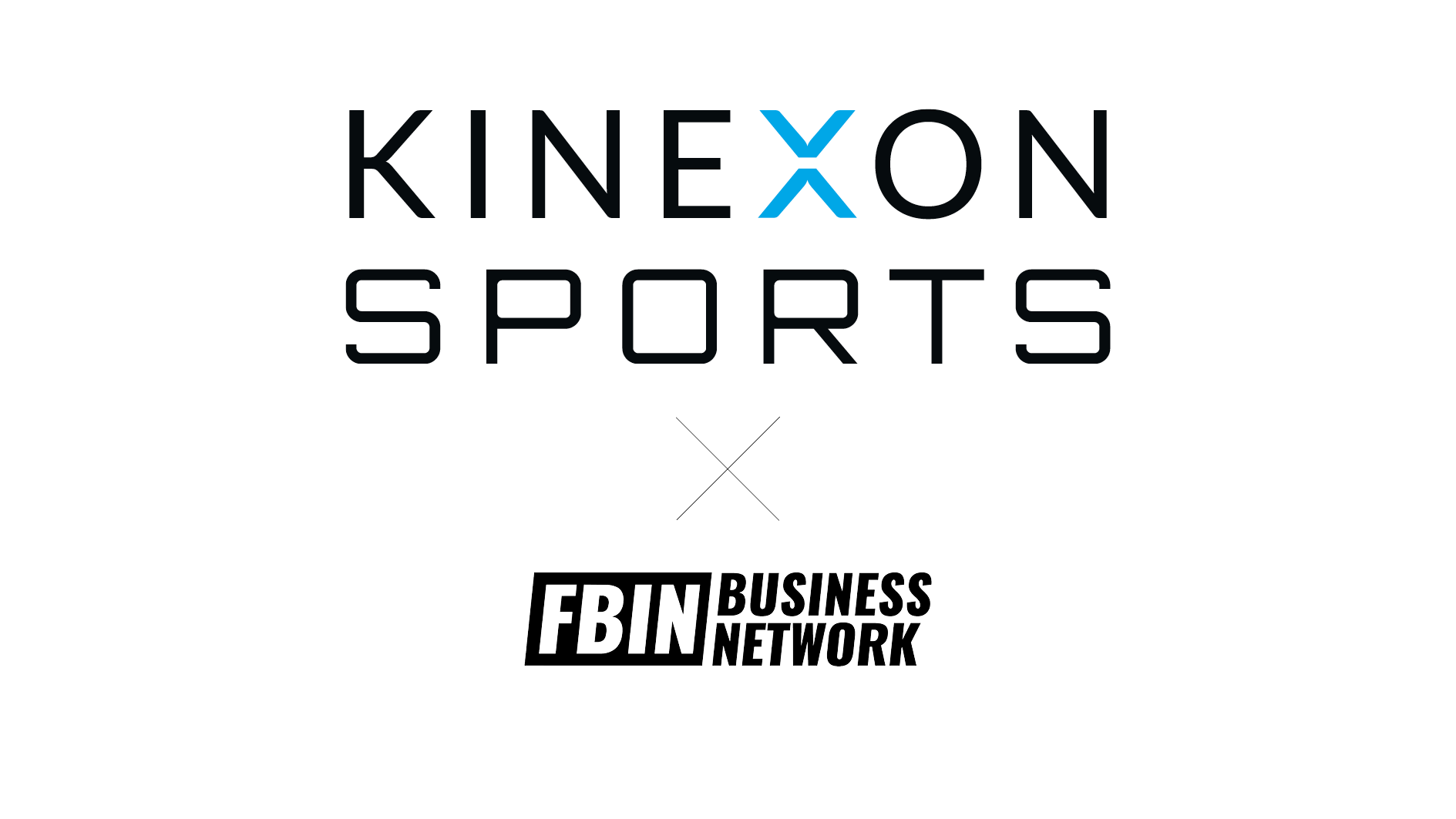Peter Sprenger, CEO SportsCloud International, a Knowledge Partner of FBIN, answers 5 questions about the latest trends in the digital world.
Digitalization is not only evolving in society, but also in sports. The corona pandemic has given this an extra boost. After all, digital is THE alternative to a world in which physical activities have been on hold for a while. Therefore, football fans can more and more engage with their clubs online by playing online games or quizzes on the respective league or club platform. Bushwalkers can still create their own unique routes by using an app. And in volleyball and handball the amount of live streams have increased rapidly. During the worldwide MarTech conference it became clear that once again the digital technology world keeps evolving.
The digital revolution has been going on for about a decade now. What is the most important trend in your opinion?
Data can be seen as one of the hottest topics the last few years. Getting access to data, processing and using it has become so much easier today that it has become available to every organization. Also in sports. The costs of conducting high quality data management have tumbled over the past two years. It is referred to as ‘analytics for everyone’. There is no longer a financial barrier to invest in data. Those who haven’t started yet, sport or non-sport, must really start today.
A warning is in order. Numerous vertical software providers promised a whole new world of possibilities, but these promises did not come true. You do not need a Rolls Royce solution for a simple problem. By doing a good needs analysis, an organization can exactly determine what they need. Data is much more accessible nowadays. It has become a daily practice for marketers and managers who no longer need to be specialists.
In addition, the quality of datasets is improving and provides deeper insights. The software itself is becoming more powerful and intelligent as more and more AI (artificial intelligence) elements are added. Because it’s ‘’self-learning’’ software it can make depth analyses of data more easily and automatic. It means that you can analyze the patterns of consumer needs (or in sports call them fans) much better and in real-time. The way you can report through real-time dashboards and interpret the data has also become easier. If you have that specific information, you know how to run your campaigns more efficient. Or you’ll learn that you need to adjust your offer.
It may feel miles away from the operational level of sports, but the opposite is true. We want to have more control over sports participation, we want to engage fans to our events, we want conversions on merchandise sales, we want our campaigns to be successful within our fan base, etc. Good information tells you everything and because of that, you can act on this information.
Due to Covid-19 the sports world has come under a lot of pressure. What is the main impact of the pandemic on sports from a digital perspective?
If you’re not able to organize physical events for your fans, it will obviously have a negative impact on everything. We may be able to catch up for that later, but we must stay connected with our athletes and fans in the meantime. It will take a huge effort, but it will also create new opportunities. We can start marketing new products and services and make them more accessible – forced by the current situation. We see that it has also been a success for several sports in the Netherlands. The Royal Dutch Hiking Association for example had to cancel their main events due to Covid-19, so they came up with an idea to create an app so that hikers still can participate in their main-events in a covid-safe way. On the other hand, the Badminton Association has been very successful with the launch of their e-commerce platform. These are all extremely good examples of digitalization during the pandemic.
If we can continue to develop these kinds of platforms, we will not only make up for lost time, but we will also have new ways to grow our businesses. However, the data must be in order, otherwise this approach will not work. In general, digital business cases are becoming more transparent. The fear of investing in these opportunities is disappearing because the numbers around the digital business cases have become super transparent in the year 2021.
What opportunities does the current world of digital technology offer to keep sports fans?
Perhaps this is the best opportunity for sports organizations in the last 2 years. As sports organizations, we think we should distribute news and content. This works quite well, but it still very much resembles what an ordinary media organization does. A recap of a volleyball match can be read on a news website, as well as the site of the volleyball federation. But the whole new digital ‘gamification’ development provides us a great opportunity to differentiate ourselves as sport and sponsors in offering content. Gamified content adds fun and game elements to the communication with users and fans. Several professional football clubs have really taken advantage of the current pandemic. The thing that they couldn’t offer on match days in an empty stadium, they have transferred to the digital environment for sponsors and fans. Club Brugge has become one of the first to make this transition succesfully.
The costs of gamification software have dropped by as much as 80% over the past three years. It has also become more time efficient because it’s a kind of plug & play within the application. That makes it all so interesting and tempting. This also is true for smaller sports organizations. This gaming-trend could also be observed in the rest of Europe during EURO 2020.
Browsers are going to block third party cookies, so it will be harder to track users on the web. What will be the impact of this?
The organizations who heavily rely on advertising – think of banners or video advertising, such as pre-rolls on YouTube – will definitely be affected by those changes. Their targeting becomes less accurate, but it is a logical next step that protects the privacy of users. Especially at moments when you hardly realize that a kind of ‘learning machine’ is always ‘’tracking’’ your online behavior. It was inevitable that we had to say goodbye to the third party cookies. Sharing data is not a problem IF you do it according to the new guidelines and you are completely transparent during this process. With the disappearance of third-party data, we will have to focus even more on collecting our own data (first-party data), which is completely transparent and most important: collected with the approval of the customer/fan.
The deal is very clear and simple: exchanging information should lead to better and more transparent services for consumers. That’s where real loyalty can be built – an opportunity for sports where emotion and loyalty are naturally very strong. Loyalty is already part of the revenue model of relatively large sports organizations. I predict that loyalty will grow enormously within recreational sports communities and not only within the professional sports fans. The current digital loyalty solutions can turn recreational sports networks into real marketing powerhouses.
What is the direct impact of artificial intelligence on the digital world?
We see AI in data analysis and the data science methods that we apply to it. But there is another trend around AI and that is: content. Automated content creation formats are really taking a flight. For example, a video editor no longer needs to be involved to produce the highlights of a match in a quick and effective way. As a marketeer it will be easier to manage and produce content.
AI can also provide unique designs. So for example, if you give an AI content tool the words “avocado” and “chair”, the tool will design 100 types of chairs based on an avocado just in a split second. The same goes for logos and other designs. Another trend around AI is that marketing automation is becoming more independent thinking. In marketing campaigns, we’re increasingly looking for action-response-follow-up action, etc. AI and automation make all those labor-intensive manual interventions unnecessary. Small marketing teams – like those often found in sports organizations – can then be much more efficient. AI will help us to automate and scale communication and campaign processes even further.
AI is yet another example of how digital will become more attractive in costs and accessible in manageability for beginners in the next few years. This is the non-coding digital world. The possibilities in this digital world over the next five years will be changing your mindset by thinking horizontally and properly linking everything you do concerning communication, marketing, campaigns, data and content.
New educational program: Digital Marketing & Analytics for Sports Professionals
Do you want to be at the forefront of digital trends and developments in the sports industry?
Then sign up for the Digital Marketing & Analytics for Sports Professionals program. In this unique 20-hour annual recurring program you will get introduced to various digital marketing tools and discuss global best practice cases in sports that help you build long- term digital strategy. This live and on-demand program is brought to you by Track, powered by Victoria University and in collaboration with SportsCloud International.
The program starts on August 31, 2021.
With the discount code FBIN10 you save 10% on the cost of 250$.








